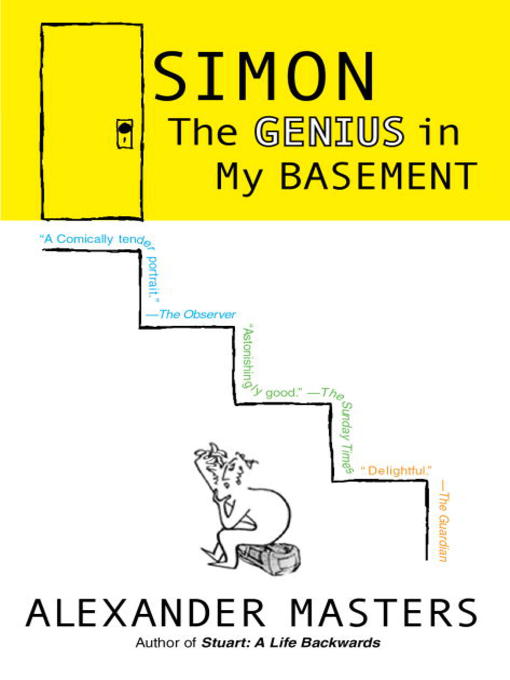Alexander Masters tripped over his first book subject on a Cambridge sidewalk, and the result was the multi-award-winning bestseller Stuart: A Life Backwards. His second, he’s found under his floorboards.
One of the greatest mathematical prodigies of the twentieth century, Simon Norton stomps around Alexander’s basement in semidarkness, dodging between stalagmites of bus timetables and engorged plastic bags, eating tinned kippers stirred into packets of Bombay mix. Simon is exploring a theoretical puzzle so complex and critical to our understanding of the universe that it is known as the Monster. It looks like a sudoku table—except a sudoku table has nine columns of numbers.
The Monster has 808017424794512875886459904961710757005754368000000000 columns.
But that’s not the whole story. What’s inside the decaying sports bag he never lets out of his clutches? Why does he hurtle out of the house in the middle of the night? And—good God!—what is that noxious smell that creeps up the stairwell?
Grumpy, poignant, comical—more intimate than either the author or his quarry intended—Simon: The Genius in My Basement is the story of a friendship and a pursuit. Part biography, part memoir, and part popular science, it is a study of the frailty of brilliance, the measures of happiness, and Britain’s most uncooperative egghead eccentric.
- Available Now - Ebooks
- Unputdownable ebooks!
- New eBook additions
- Rapid Reads! (Always available)
- Read Before You Watch
- Addiction Affects Everyone
- NSFW! - ebooks
- Harry Potter around the world
- 中文标题
- Livres en Français
- Graphic novels & comics - for adults
- Most popular
- Read a Banned Book
- See all ebooks collections
- New audiobook additions
- Unputdownables!
- Read a Banned Book
- Hola, Bonjour, Hallo, Ciao, Namaste, Marhaba! Learn a language
- Author interviews UPDATED (Professional Book Nerds) - Always Available - Audio podcasts
- Nonfiction Audio - UPDATED - Always Available
- Fiction Audio - UPDATED - Always Available
- En Français, comprenez-vous?
- по-русски, понимаете ли вы?
- NSFW!
- Harry Potter around the world
- Most popular
- Available now
- See all audiobooks collections




